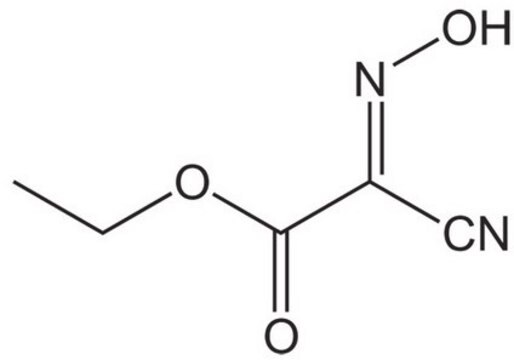8.03649
N,N′-Diisopropylcarbodiimide
≥99.0% (GC), for peptide synthesis
Synonym(s):
N,N′-Diisopropylcarbodiimide
About This Item
Recommended Products
product name
N,N′-Diisopropylcarbodiimide, for synthesis
Quality Level
Assay
≥99.0% (GC)
form
liquid
reaction suitability
reaction type: Coupling Reactions
bp
145-148 °C/1013 hPa
transition temp
flash point 33 °C
density
0.81 g/cm3 at 20 °C
application(s)
peptide synthesis
storage temp.
2-30°C
InChI
1S/C7H14N2/c1-6(2)8-5-9-7(3)4/h6-7H,1-4H3
InChI key
BDNKZNFMNDZQMI-UHFFFAOYSA-N
Related Categories
General description
Application
- Synthesis, structure and reactivity study of magnesium amidinato complexes derived from carbodiimides and N, N′-bis (2, 6-diisopropylphenyl)-1, 4-diaza …: This study involved the preparation of magnesium amidinato complexes using N,N′-Diisopropylcarbodiimide, exploring their structural and reactive properties in various chemical transformations (S Anga, J Bhattacharjee, A Harinath, TK Panda, 2015).
Analysis Note
Density (d 20 °C/ 4 °C): 0.813 - 0.815
Identity (IR): passes test
Signal Word
Danger
Hazard Statements
Precautionary Statements
Hazard Classifications
Acute Tox. 1 Inhalation - Eye Dam. 1 - Flam. Liq. 3 - Resp. Sens. 1 - Skin Sens. 1
Storage Class Code
3 - Flammable liquids
WGK
WGK 3
Flash Point(F)
91.4 °F
Flash Point(C)
33 °C
Certificates of Analysis (COA)
Search for Certificates of Analysis (COA) by entering the products Lot/Batch Number. Lot and Batch Numbers can be found on a product’s label following the words ‘Lot’ or ‘Batch’.
Already Own This Product?
Find documentation for the products that you have recently purchased in the Document Library.
Customers Also Viewed
Our team of scientists has experience in all areas of research including Life Science, Material Science, Chemical Synthesis, Chromatography, Analytical and many others.
Contact Technical Service












